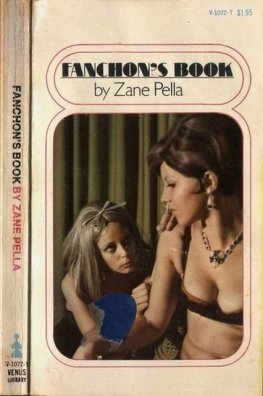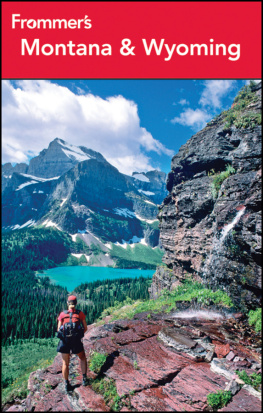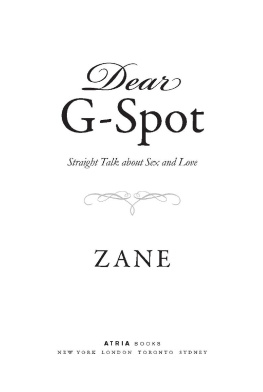This edition is published by PICKLE PARTNERS PUBLISHINGwww.picklepartnerspublishing.com
To join our mailing list for new titles or for issues with our books picklepublishing@gmail.com
Or on Facebook
Text originally published in 1963 under the same title.
Pickle Partners Publishing 2015, all rights reserved. No part of this publication may be reproduced, stored in a retrieval system or transmitted by any means, electrical, mechanical or otherwise without the written permission of the copyright holder.
Publishers Note
Although in most cases we have retained the Authors original spelling and grammar to authentically reproduce the work of the Author and the original intent of such material, some additional notes and clarifications have been added for the modern readers benefit.
We have also made every effort to include all maps and illustrations of the original edition the limitations of formatting do not allow of including larger maps, we will upload as many of these maps as possible.
ZANE GREY
Wyoming
1
WHEN MARTHA ANN DIXON found herself on the open Nebraska road she realized with a shock that at last her innate propensity for running away from home had definitely materialized. She pinched herself....It was true. She was here, and her face was turned to the West!
Her first yielding to this strange wanderlust had occurred at the age of five when she ran off from her aunts home on the shore of Lake Michigan and was found strolling about in the woods as naked and unashamed as any little savage. The second excursion, a flight from school, had come somewhat later; and then there had followed other occasions not so vividly remembered.
But this one, in the last year of her teens, was vastly different. This adventure was the result of long planning and deliberation to make a dream come true, a dream of lovely roads and bright-colored hills, of dim horizons and purple ranges, and at last the longed-for goalthe West.
The rattle of a slowing Ford swerved Martha Ann off the road.
Hello, kid. Want a lift? called out a cheery voice. A redheaded, freckle-faced youth accommodated the speed of his car to her brisk stop.
No, thanks, she replied, Id rather walk.
Cripes! If youse aint a girl! Scuse me , the driver ejaculated with a grin. Come on. It aint every day a dame gets a chance to ride with me.
Ill leave that golden opportunity for someone more appreciative.
Awawright. I jest thought mebbe you was tired. What you doin?
Hitchhiking.
Say, you aint hitchin on very well this mornin.
Ill hike every day till Im tired.
Where you goin?
Wyoming! exclaimed Martha Ann, belligerently. It was the first time she had spoken that magic word aloud.
Whew!...Well, Ill be dogged! the redhead exclaimed. Then with an incredulous glance at the diminutive figure on the highway he started up his ancient car and was soon lost in the clouds of dust.
Martha Ann giggled softly to herself. So she finally had nerve enough to speak it! Wyoming! How sweet it sounded! What untold promise the word held! What did it matter that her destination was some unknown town in Wyomingwhat difference did it make that she had only fifty dollars in her pocket which would have to last indefinitely?
She walked on happily. Spring was in the air. The fields were golden and the trees and fence rows showed freshly green; swamp blackbirds and meadowlarks sang melodiously from the roadside; a fragrance of burning leaves was carried on the soft breeze. From beyond where the white road disappeared over the horizon something beckoned imperiously.
To the girl it still seemed like a miracle that she should be here. Again she reviewed the events that had led her to this open road which she hoped would take her to Wyoming.
There had been sufficient money to put Martha Ann through high school. That had satisfied her mother, but Martha wanted to go on. Mrs. Dixon was making too many references to Martha Anns chances of marriage. She argued that Martha at eighteen had grown into an attractive girl who could marry well. But Martha Ann had ideas of her own which had nothing at all to do with marriage.
She wanted to go to the university for a while, and then work, and above all to see something of the world. The world to her meant the West. A twofold reason accounted for Marthas obsession. As a child she had heard all about her grandmothers only brother, who had run away from home to seek his fortune in the West. And it had helped to make her a rabid reader of Western romances.
For thirty years Uncle Nick Bligh had not been heard from. But when Martha Ann was seventeen, her grandmother had received a letter from the missing brother, explaining that as he had failed to make his fortune he had never troubled himself to write. But age and poor health, together with a realization of the false pride that had motivated his silence, had prompted him at last to write for news of his family. The letter bore a postmark of Randall, Wyoming.
This communication from the long-lost uncle had fixed in Martha Anns mind a secret and daring idea. She would go west to find Uncle Nick. That was incentive and excuse enough to crystallize what had been only a vague purpose.
Ways and means to attend the university and at the same time save money enough to start her trip kept Martha Ann wide-eyed for many long hours at night, as well as pensive by day. But she had solved the problem. She obtained work as an assistant in a dentists office, and in addition to after classes she worked on Saturdays, Sunday mornings, and during all vacations.
More than a year and a half of this intensive strain had told upon Martha Anns mental and physical well-being. But nothing daunted her. As time went on her secret purpose grew more and more alluring. It satisfied her longing for happiness. But strange to discover, the busier she became the greater grew the masculine demands upon her leisure. To their persistent requests for dates she remained indifferent.
Martha Ann had long wondered about her attitude toward men. Perhaps, as her mother and some of her friends claimed, she was abnormal. But she could not willingly admit this charge, and from distress she passed to impatience and finally to disgust. Yet she liked boys. She admired young men who were making good in life. She could at times have great fun with themin the earlier stages of friendshipand could by intense inward pressure wring some sort of romantic emotion out of her heart for them. But to her dismay, almost every friendship led to one of two sad conclusionsa proposal of marriage or a fumbling pass which disgusted her. Why couldnt they just be friends? As for those few bolder young men who attempted to be too free with their handsMartha Ann despised them.
The time came when the strain of study and outside work, the importunities of her admirers and the constant nagging of her mother had changed Martha Ann, even in her own eyes. She wanted to get far away from the dirty, noisy, crowded city. Open spaces beckoned her. Into her dreams came more and more lovely green places, where flowers and birds abounded. From feeling stifled and weary she gradually sank into a state of real melancholy. The terrific burden on the slender shoulders had at last become too heavy; her flesh was not the equal of her spirit. Also, her mother, anxiously regarding Marthas future, was now urging her to marry young Bob Wirth; who can take care of you nicely, so you wont have to worry about a little money or a new dress. But worry had become part of Marthas very existenceworry about school credits, about making her little earnings go a long way, about the dissatisfaction and nagging at home, about the pressing fact of the increasing demands of the young men. The proms, the formals, the movies, all had become stale and unprofitable to her. She longed for something to happensomething unforeseen and tremendous.









